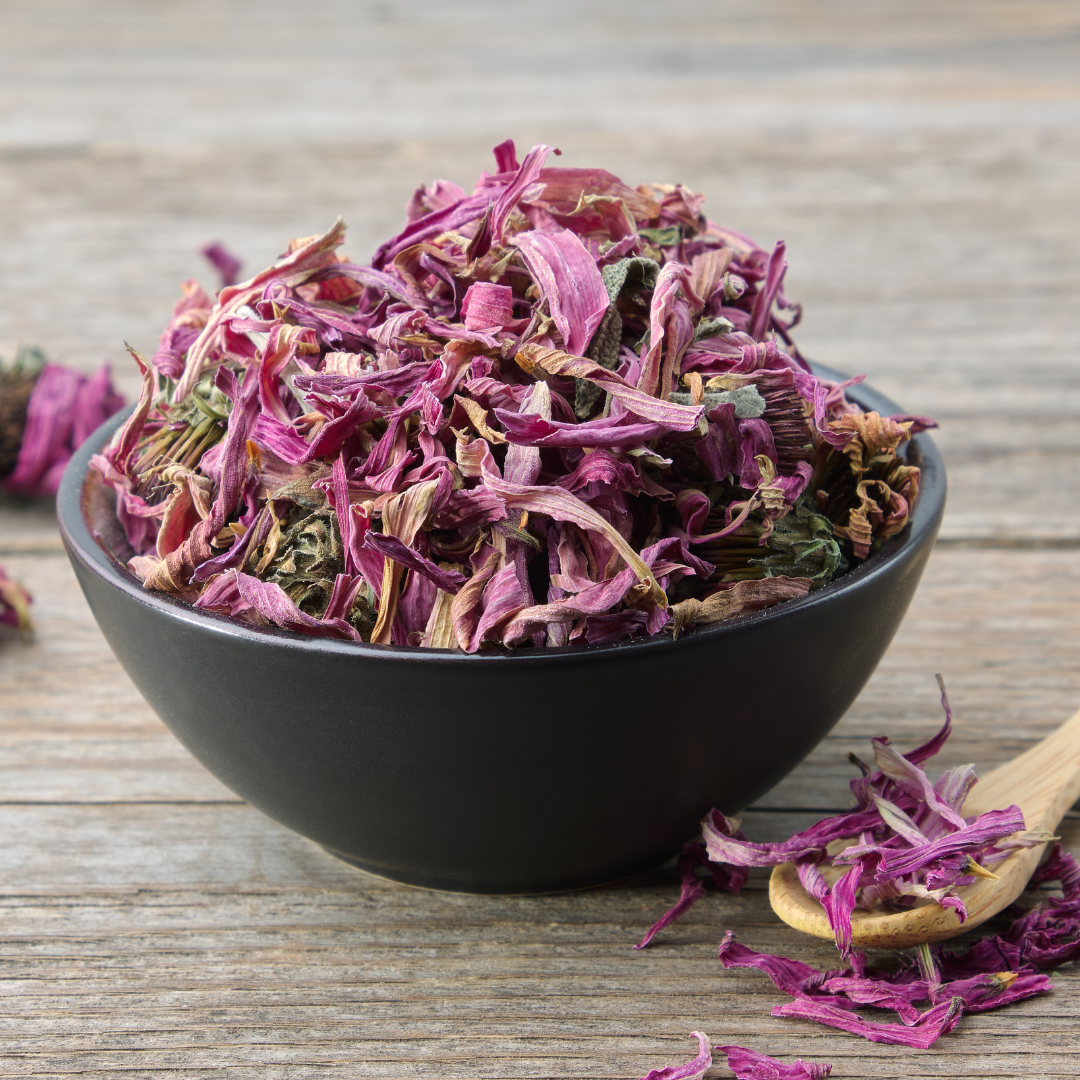
Echinacea
Scientific Name: Echinacea purpurea, Echinacea angustifolia, or Echinacea pallida
Common Name: Echinacea
Health Benefits:
Immune System Support:
- Echinacea is well-known for its ability to stimulate the immune system, helping the body fight off infections such as the common cold and flu.
- May reduce the severity and duration of upper respiratory infections.
Anti-Inflammatory Properties:
- Helps reduce inflammation, supporting recovery from injuries and chronic inflammatory conditions.
Antioxidant Rich:
- Contains phenolic acids, flavonoids, and cichoric acid, which protect cells from oxidative stress and promote overall wellness.
Supports Skin Health:
- Traditionally used to heal wounds, burns, and skin irritations due to its antimicrobial and anti-inflammatory properties.
Respiratory Health:
- May help ease symptoms of sore throats, sinus infections, and other respiratory issues.
Vitamins and Minerals:
- Vitamin C: Supports immune health and collagen production.
- Iron: Essential for red blood cell production.
- Zinc: Enhances immune function and wound healing.
Active Compounds:
- Cichoric Acid: Enhances immune response and acts as an antioxidant.
- Alkamides: Modulate inflammation and boost immune activity.
- Polysaccharides: Support immune system function.
Safety Information:
Allergic Reactions:
- Echinacea is part of the daisy family (Asteraceae); avoid if allergic to ragweed, daisies, or marigolds.
Drug Interactions:
- May interact with immunosuppressive drugs, potentially reducing their effectiveness.
- Consult a healthcare provider if you have autoimmune conditions, as echinacea may stimulate immune activity.
Usage Guidelines:
- Safe when used short-term (up to 8 weeks) in recommended amounts.
- Long-term use may reduce its effectiveness and should be avoided unless advised by a healthcare provider.
Parts of the Plant Used:
- Root: Contains higher concentrations of alkamides and is often used for immune-boosting tinctures and extracts.
- Aerial Parts (Leaves and Flowers): Rich in cichoric acid and polysaccharides, commonly used in teas and capsules.
Fun Fact:
Echinacea was a staple in Native American medicine for centuries, used to treat wounds, infections, and snake bites!
Note:
This information is for educational purposes only and is not intended to replace medical advice. Always consult with a healthcare professional before using herbal products, especially if you are pregnant, nursing, or taking any medications.



